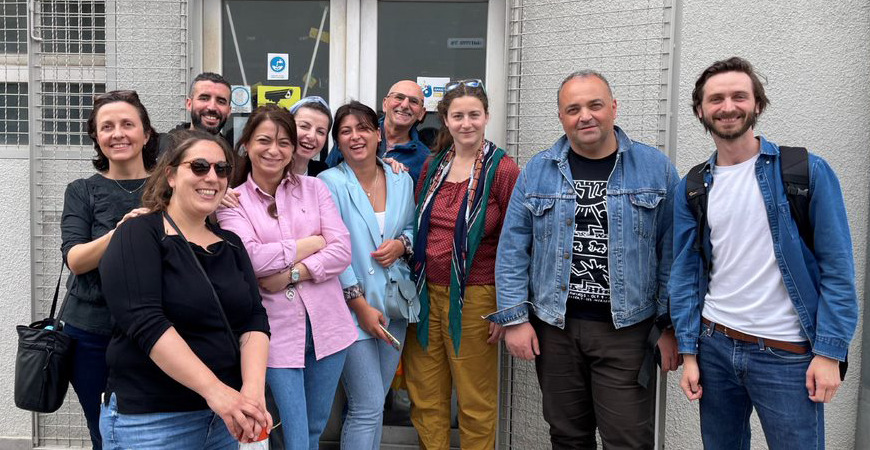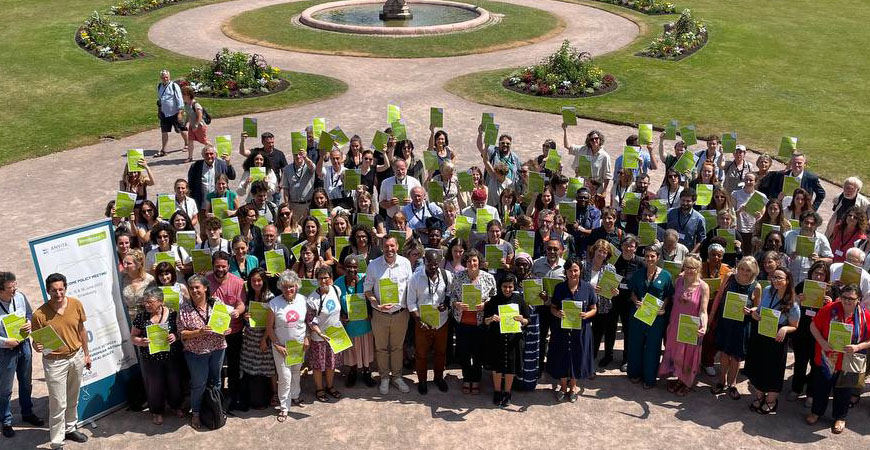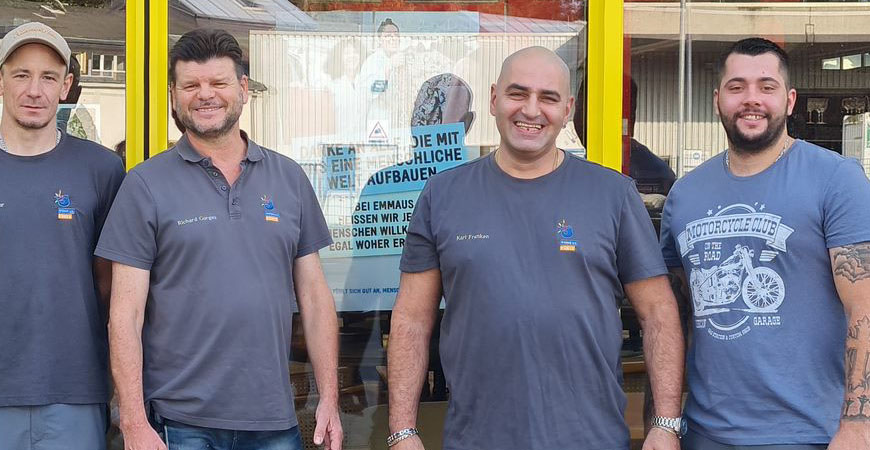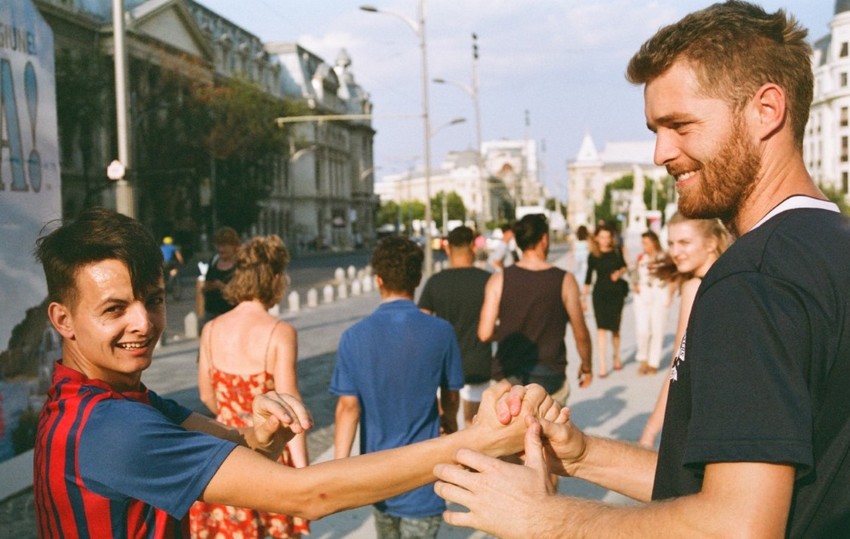Georgia: the “balcony of Europe” and a group which is now ready to join the Emmaus movement!
The vitality of our movement can be measured by the exchanges and discussion it creates, the friendships it helps to forge and the mutual aid initiatives that it helps to launch. Our recent visit to the Emmaus GEO group once again proved that our movement’s history is a great example for all.
In 2015 a small association called ‘Emmaus Georgia’ was created in Tbilisi, Georgia. Working with vulnerable populations (distributing clothes, doing the rounds, etc.) and being active on social media, the group soon created intrigue. Our Ukrainian friends had heard about the group and in 2017 Emmaus Oselya invited the founder of Emmaus GEO, Giorgi, to a meeting of the European groups to discuss the shared challenges faced by the Polish and Ukrainian groups (the Poland-Ukraine collective). At the meeting this little Georgian group and all of the other participants were able to learn more about the scope of our movement and its diversity as well as meeting people and groups who have the same passion for tackling the causes of poverty. After this meeting we had a feeling that a new Emmaus adventure was about to begin – and that this time it would be in Georgia.
A Steady Journey to Join the Emmaus Movement
During a long stay in France in the 2010s Giorgi spent some time in Grenoble and came across the local Emmaus group. When he returned to Georgia he couldn’t get the idea of recreating the Emmaus model out of his head. He wanted to help the most vulnerable in Georgia. On the other hand, he knew nothing back then about the national and international scope of the activities led by the solidarity shop he had known in Grenoble. He’s had a lot of learning to do since then!
Emmaus GEO became a trial member of the Emmaus movement in 2019. The last visit to the group (the ‘pre-membership visit’) took place in late April 2023. The team noted the impressive progress made by the group since their previous visit in June 2021.
Over the years the group has made real progress and has changed a lot, although it has not been a lightning-quick transformation. Emmaus GEO has benefited from the solid support of the French group Emmaus Annemasse, providing information about the Emmaus movement and supporting our Georgian friends with their projects. Emmaus GEO has been going through things step by step, consolidating its gains and always sticking to its values of unconditional welcome and tackling the causes of poverty – values which are part of the group’s DNA.
Innovative Activities – An Emmaus Tradition
Between June 2021 and April 2023 Emmaus GEO strengthened its financial independence by becoming the owner of a house in Kvareli, a small town in the wine region of the country that attracts a significant number of tourists. This house will allow the group to welcome more companions. The companions will be in charge of running a vacation home for tourists. The site will have a few bedrooms and will open in the coming weeks!
In early 2023 the Kvareli town hall also provided the group with a new 113m² sales area with a very attractive shop window. The clothing shop that will be launched there should allow the group to attract new customers and to strengthen its financial independence. The grand opening will be in a few weeks’ time!
Furthermore, in Tbilisi Emmaus GEO runs a second-hand clothing store which often attracts people who are in vulnerable situations. They swing by for a chat or for a coffee and the volunteers (there are over 30 volunteers already!) are always there to listen. It is more than a mere shop, this site helps to build relationships and represents, in itself, a sort of mutual help network.
The group is also very active in its initiatives with displaced persons from Abkhazia and South Ossetia who are often living in highly vulnerable situations. Since 2008 these populations have been living on the outskirts of Tbilisi in insalubrious buildings where there is sometimes no electricity or running water. Emmaus GEO visits these people on a weekly basis, distributing food and clean clothing. The group also fights to promote the rights of these populations and to find them paid work.

In front of the Emmaus GEO shop in Tbilisi. © Emmaus Europe






